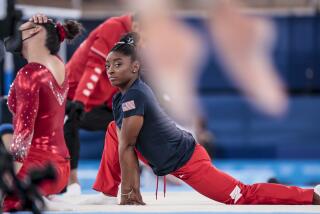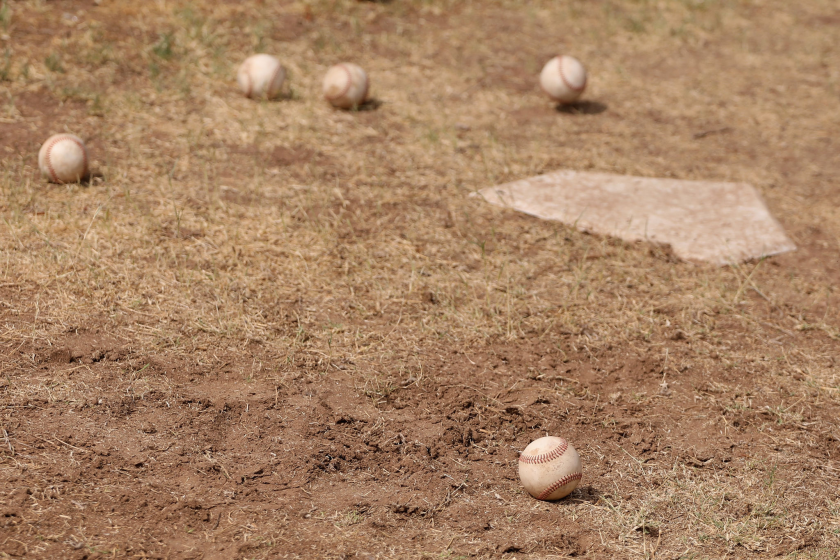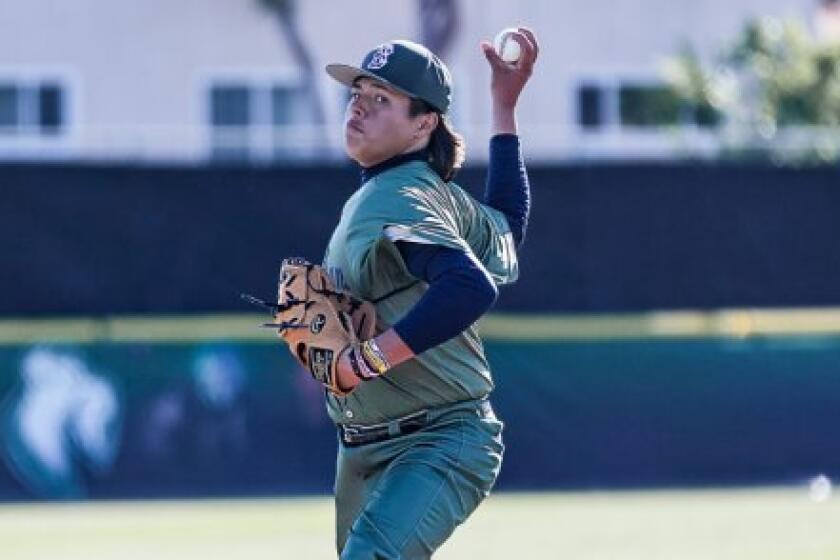She Couldn’t Gut It Out
- Share via
MELBOURNE, Australia — Pete Sampras’ throwing up on the court at the U.S. Open, and going on to beat Alex Corretja, is burned deep into tennis fans’ memories.
There was Andre Agassi hobbling through the final two sets of an agonizing five-set loss to Jarkko Nieminen last year at the French Open, barely able to move because of an injured back, which would keep him out of Wimbledon.
Serena Williams grimly forged ahead despite an abdominal injury, losing to Maria Sharapova in the final of the season-ending WTA Championships in 2004. This was a significant career correction for Williams, who once had quit because of an injury when she was a couple of games away from losing to Virginia Ruano Pascual at Wimbledon in 1998 in the third round.
All brave, and widely chronicled efforts, to be sure. But just how should someone who takes the other path be regarded?
More questions were raised than answered about Justine Henin-Hardenne’s decision to quit, citing an upset stomach, in the second set of the Australian Open final against Amelie Mauresmo, who was winning 6-1, 2-0. It was the first time it had happened in the women’s final at a Grand Slam in the Open Era.
The episode largely went against past performances by Henin-Hardenne. This is the same woman who needed an IV in the early-morning hours after a grueling semifinal win against Jennifer Capriati at the U.S. Open in 2003 and, despite looking as though she was running on empty, returned later that night to defeat countrywoman Kim Clijsters of Belgium in the final.
She once stayed on the court against Mauresmo, despite blowing a set and a 5-2 lead in the second at a clay-court event at Amelia Island in 2004, and said she felt weak during the loss. She subsequently was diagnosed with a debilitating virus. At the 2004 French Open, as the defending champion, Henin-Hardenne completed a second-round match despite suffering from flu and bronchitis, losing to a qualifier.
This track record didn’t help her much in some quarters of the court of public opinion.
Mauresmo was asked about the issue of professionalism.
“What can I say? Am I going to make controversy about that?” she said. “No. That’s not the day for this for me.”
Henin-Hardenne didn’t get much help afterward -- but maybe that was her decision. A statement from the doctors or trainers who treated her might have quieted some of the critics. But some of the wounds were self-inflicted during her post-match news conference as she appeared less than complimentary when asked about how well Mauresmo was playing.
“I think she had a lot of time because I was very far from my baseline, no energy, nothing in my ball,” Henin-Hardenne said. “So she had a lot of time. When you have this kind of time, it’s pretty hard to do mistakes.”
This was from someone who, less than 24 hours earlier, had spoken about how great she was feeling, saying convincingly, “In the last two years, I never felt as good as now.”
More to Read
Go beyond the scoreboard
Get the latest on L.A.'s teams in the daily Sports Report newsletter.
You may occasionally receive promotional content from the Los Angeles Times.











